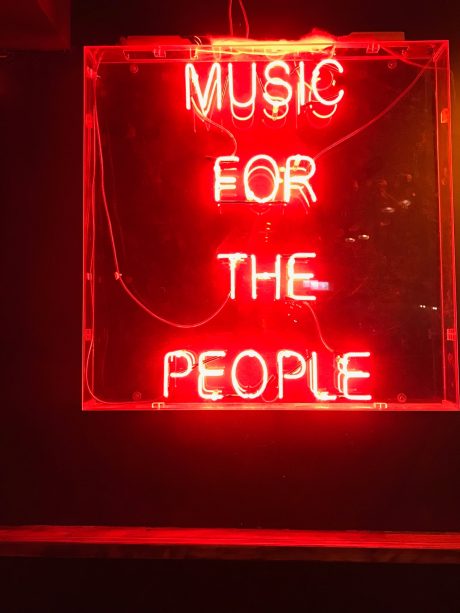Research Roundups: September 2023
26th September 2023

Photo by Tallie Robinson on Unsplash
This month it’s back to school for music teachers and university lecturers in the UK: our round up collects recent publications and research about music education in general. During September, which seems to have flown by, I’ve been meeting lots more fantastic early career researchers (including Kristl Kirk on supporting dyslexic students; Lucy Poole on supporting female voices and Stefanie Williams on outdoor music play in early years).
Latest research updates
There are some tough, if not surprising responses reflecting concerns about the decline in students pursuing music GCSE and A Levels. First, a podcast, Chris Woods’ The Music Education Podcast features academics Anthony Anderson and Adam Whittaker who discuss the topic. Adam wrote about this in 2021, unpicking more of the research on teachers’ perceptions of Level 3 musical qualifications. It would be great to see work co-produced with young people that asks about their perceptions of pursuing music at those key points (thinking about the excellent Youth Voice’s ‘The Sound of the Next Generation‘ Report from 2019) so do get in touch if you’re working on something like this.
Elsewhere, an excellent piece on music students’ use of digital online resources at Zimbabwe State Universities during Covid-19 in a collection on African Media Space and Globalization. Daniel Silva dos Santos and Ana Paula Peters’ work on Brazilian music education looks at challenging colonial discourses that are still part of music training (both peer reviewed, open access). Also of interest, Damla Tahirbegi’s work on the relationship of music students in small ensembles, and the emotional-regulation strategies used by them to maintain or re-establish a positive group climate (peer reviewed and open access).
Books round-up
Karin Hendricks’ edited collection The Oxford Handbook of Care in Music Education looks fantastic and pulls together work from across a huge range of international and national backgrounds. Though the price of these large collections can be a bit off-putting (to say the least) you may well be able to get it through interlibrary loan in the UK as it starts to make its way out onto reading lists. This 48-chapter collection covers topics like environmental care, student and teacher mental health and wellbeing and trauma informed approaches. In the Cambridge Companion to Applied Musicology, Paul Fleet’s work on making the value of music degrees more explicit is timely given the pressures facing Higher Education right now.
Elsewhere there are some fantastic new collections and editions: although Melissa Hoag’s fantastic Expanding the Canon Black Composers in the Music Theory Classroom (Routledge, 2022) is aimed at university level music, it will also be hugely helpful for practical secondary lessons (KS4). Karen Cyrus’s chapter on ‘Strategies to Integrate Pan-African Music’ looks great. Also with Routledge and published at the end of August, Susan Young’s Music in Early Childhood: Exploring the Theories, Philosophies and Practices covers birth to 8 years, and would be useful for early years provision.
Your questions answered
Finally one reader asked what the best way might be to move forward with their idea for PhD in music education. I asked Dr Rachael Durkin, Assistant Professor in Music at the University of Northumbria, and chair of the strategic board of Music Partnership North and she gave some clear advice:
If you want to study for a PhD in music education, the best advice is to identify the university, and specifically the academic, you wish to study with. They will be able to help you shape your research questions, and direct you to possible sources of funding. Having conversations early will help you to formulate your ideas, and check that you are addressing a gap in scholarship so you can be sure that you will make a positive impact with your studies.
If you look at staff pages on different departmental websites, potential supervisors will often list areas they are interested in supervising. You can also search for funded projects on websites like FindaPhd.com – where you might have less freedom to pitch a new idea but be helping support an existing project – in these cases you usually go through an application process similar to a job recruitment to receive funding throughout your studies. Getting funding to study at PhD level is a challenging but not impossible task. Don’t be afraid to ask potential supervisors about their ideas as they want to help you and will have a good idea of potential opportunities.
As ever, get in touch if you’d like to share your research with the Music Mark community, throw us a question for next month, or suggest some excellent research you’ve come across.
By Dr Sarah K. Whitfield, Research Lead for Music Mark



